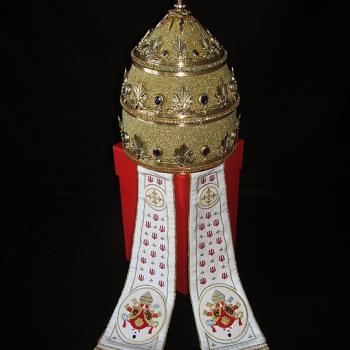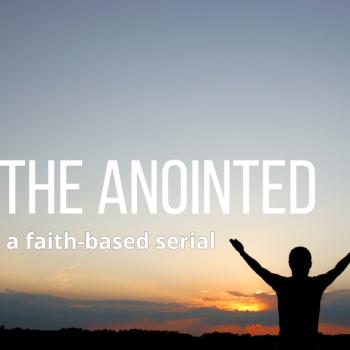
In this second part of our five-article series, we dive deep into a serious crisis facing evangelicals. It’s like they’re stuck in their teen years when it comes to faith, something the apostle John talked about in his letter. This article talks about how even the good things in the evangelical movement – like being energetic, holding tight to God’s word, and not being afraid to fight for what they believe – have a downside.
Sadly, these very strengths can breed intolerance and spark conflicts, creating an “us versus them” mindset, which is a crisis in itself, leading to many members silently drifting away. We’re going to explore this critical situation in-depth, seeking solutions for the evangelical community to break free from this ongoing youth phase and mature in their faith practices.
In a previous article about the evangelicals, I described us as unfortunately still mired in an adolescent psyche. Because of our origins as a counter-movement to liberal theology, we have unconsciously chosen to banish forms of faith uncertainty from our existence. This has taken us evangelicals far, but ultimately, we have stagnated in our development. Someone who describes this beautifully is the apostle John.
The apostle John outlines three stages of faith in his first letter. He states in 1 John 2:12-14, ” I write to you, dear children, because you have known the Father. I write to you, fathers, because you have known him who is from the beginning. I write to you, young men, because you are strong, and the word of God lives in you, and you have overcome the evil one.” (NIV translation)
Looking at the evangelical movement, it could be said that, regrettably, we have remained stuck in the youth stage
It seems like we see three stages of faith here: children, youths, fathers. Three stages not tied to age. Stages that are all good in themselves, but which can simultaneously become harmful if you linger too long in the first two. Looking at the evangelical movement, it could be said that, regrettably, we have remained stuck in the youth stage
Being Stuck in the Evangelical Youth Stage
John describes the youth stage with three powerful characteristics: Youth are strong, they carry God’s word within them, and they have overcome the evil one. Three characteristics that certainly apply to the evangelical movement.
Being Strong: As evangelical Christians, we often feel strong and triumphant. Just look at the content of the favorite hymns we sing within the evangelical movement.
God’s Word in You: Within the youth stage, God’s word lives in you. As evangelical Christians, we place a lot of emphasis on the Bible as the word of God and encourage people not only to read the Bible but also to ‘stand on God’s word.’ The phrase ‘God’s Word says…’ is also commonly used.
Combative: Additionally, the youth stage is also a combative period. As evangelical Christians, we always have a noble cause to fight for. There are matters to pray not only for but also against. We participate en masse in sponsored runs and engage vigorously for others.

Daring To Look At The Shadow Side of Our Strengths
John describes the youth stage with three strong characteristics. The disadvantage of every strong characteristic is that it automatically also has a shadow side. The stronger the characteristic, the more potent the shadow side. The same is true in the evangelical movement…
Because we cannot recognize the evil in ourselves, we project it onto someone outside of us
Being Strong: The shadow sides of being strong include the inability to be weak, or interpreting strength as being ‘big,’ leading quickly to the adolescent question: “Who’s the biggest?” One consequence of this shadow side is that you sometimes encounter adolescent leadership focused more on personal and collective success than on the welfare of the Body of Christ in a city or region.
God’s Word in You: Strangely enough, the fact that ‘God’s word lives in you’ also has one or more shadow sides. For example, when you confuse God’s word with your theological convictions, and these two become intermingled. One result is the perpetuation of a divided church because we consider our personal conviction of the truth more important than our collective unity. Another consequence of the merging of God’s word with our theological conviction is a rigid black-and-white mindset that leaves little to no room for doubt, for questions, and thus for growth.
Combative: Even the strength ‘you have overcome the evil one’ unfortunately carries a shadow side. In our shadow part, it’s not always clear who or what the evil one is anymore. Lacking self-awareness, the evil is always outside us. Because we can’t recognize the evil in ourselves (personally or collectively), we project it onto someone (personally or collectively) outside of us. So somewhere outside of us is the evil we must fight against. Combine this with our unconscious fear of faith uncertainty, and the evil one is quickly identified.
The church member who believes differently, acts differently, and doesn’t conform, will adapt to the group pressure and expectations of the congregation

Reflecting On Our Significant Backdoor
Before we realize it, we’ve unconsciously made someone into the evil one and thus the enemy. Often it’s someone close to us but clearly different. Like the church member who believes differently, acts differently, and doesn’t adhere to our evangelical expectations and lifestyle. This touches us deeply in our unbearable sensation. It makes us insecure.
How can a movement and congregation transition to the stage of being fathers or mothers in faith?
But insecurity is not allowed, so we automatically engage in a struggle with this other person. But most Christians don’t want any conflict. Most of us are unconscious peace-seekers, so what happens? The church member who believes differently, acts differently, and doesn’t conform, will adapt to the group pressure and expectations of the congregation. This might seem like discipleship at first glance, but it can also become a serious blockage in the development of the other’s faith life.
We are rejecting, judging, and excluding certain people who cannot or do not want to conform to our group expectations
From our fight against the evil one, we sadly fail to see that we are rejecting, judging, and excluding certain people who cannot or do not want to conform to our group expectations. One consequence of this is the significant backdoor of the evangelical movement. How can a movement and congregation transition to the stage of being fathers or mothers in faith?
Fathers and mothers in faith who:
- dare to wrestle with God,
- can create space for the uniqueness of the children,
- have learned to live with a new image of God,
- have confronted the encounter with trauma and can leave it behind,
- can be strong from a place of weakness.
How can the evangelical movement make the transition to the phase of being a father or mother?
I would like to address this question in a subsequent article.
This article is the second in a five-part series.
Read the other parts of this serie on the Evangelical movement:
Part 1: Evangelicalism’s High School Traits: Can Trauma Be the Key?
Part 3: Please God Strike Evangelicalism On It’s Hip
Part 4: Only By Facing Our Trauma Can The Evangelical Movement Reach Real Fatherhood
Part 5: Why Evangelicalism Needs ‘Limping Courage’ On The Road To Maturity
Have you read some my other articles:
- Three Reasons Why Bible-Believing Christians Don’t Really Exist
- Jesus Dealing With Letters of Complaint: A Parable On Modern Church Leadership
Matt Vlaardingerbroek, a former seasoned church planter and pastor in Holland’s inner cities, brings Bible stories to life through ventriloquism and magic. He’s authored three books, and founded www.creativekidswork.com, providing over 1,500 innovative Sunday school activities worldwide.

















